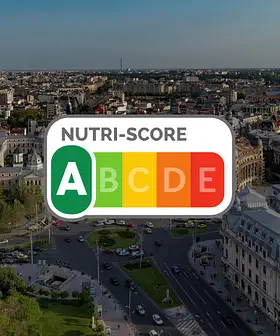BRUSSELS – Food prices have surged in recent years across the European Union. In March 2023, food-price inflation hit a record high of 15%. In Germany, consumers are paying nearly 30% more for food than they did in 2021, even though energy and production costs have declined.
Some economists have attributed this to food processors and retailers reaping windfall profits at the expense of low-income households. Meanwhile, the share of retail food prices reaching farmers keeps shrinking. German producers, for example, received just 21.7% of retail prices in 2021, and this figure continues to decline. The fall in farmers’ share of bread prices is a striking example: in 1970, farmers earned 19.2% of the shelf price; by 2022, that share had plummeted to 5%.
Milk producers face similar challenges. Between 2014 and 2024, milk prices consistently failed to cover rising production costs. As a result, many farms operate at a loss and depend on subsidies to survive.
Farmers are expected to produce high-quality food while also providing – often under burdensome bureaucratic requirements – environmental, climate, and animal protection. But as value creation shifts away from producers, profits are increasingly concentrated among a few powerful processors and retailers.
The widespread farmers’ protests of early 2024 revealed deep-rooted frustration across the EU’s agriculture sector. But the political response was underwhelming. Under pressure from conservative and liberal factions, the bloc’s Common Agricultural Policy was rapidly stripped of environmental standards, amounting to a powerful blow against the CAP’s already-fragile ecological pillar. Meanwhile, the core issue – ensuring fair prices along the value chain – has not been sufficiently addressed.
Fortunately, the issue of fair pricing in agriculture is finally gaining political traction. The EU is now revising both its Unfair Trading Practices Directive and the Common Market Organization rules. These reforms are the result of the Strategic Dialogue on the Future of EU Agriculture – a policy forum launched by European Commission President Ursula von der Leyen in 2024 – which brought together a broad coalition of stakeholders. The EU’s Agriculture Commissioner Christophe Hansen has incorporated parts of its recommendations into his policy agenda.
But fixing Europe’s broken food supply chain requires more than cosmetic changes. Prices must be set from the bottom up, which implies four key reforms, starting with the enforcement of contractual obligations. Dairy farmers, in particular, often deliver their products without knowing the price – an arrangement that would be unthinkable in most other sectors.
EU law already provides leeway for reform, as seen in France and Spain, where binding written contracts are mandatory. Spain even prohibits sales below production costs. In Germany, however, attempts to introduce similar measures have been blocked by the agricultural lobby and its conservative and liberal allies.
Second, contractual obligations must extend to farming cooperatives. Although founded on progressive principles, many of these cooperatives now operate like conventional large corporations, prioritizing the lowest possible purchase prices over the interests of milk producers. Yet in countries like Germany – where cooperatives account for 70% of milk processing – they remain exempt from such requirements.
Third, the rights of producer organizations must be strengthened. While dairy giants like Arla and DMK would control up to 13% of the EU’s milk volume following their planned merger, current EU rules cap the market share of farmer-led producer organizations at just 4%. Despite years of intensive discussions, this imbalance persists, hindering fair negotiations.
Lastly, EU policymakers must curb market concentration in food retail. In Germany, just four retailers control 85% of the food market. The food processing sector is also highly concentrated. A 2024 report by the German Monopolies Commission warned that rising market concentration is harming both producers and consumers.
Amid these challenges, promising models are beginning to emerge. One example is Germany’s recently piloted three-party contract, which is based on the French model. Instead of producers blindly delivering products to processors, who then sign separate contracts with retailers, all three parties agree in advance on suitable partners and enter into long-term agreements – typically lasting 3-5 years – with clearly defined pricing structures.
Such three-party contracts contain clauses mandating quarterly reviews to adjust for market and cost fluctuations. Beyond pricing, they address product layout, marketing strategies, and standards for animal welfare and environmental sustainability. By fostering a sense of shared responsibility, these agreements promote quality improvements and fair compensation. They also help shield producers and consumers from market volatility, create added value throughout the supply chain, and offer a foundation for best practices that can be scaled both nationally and regionally.
Given that European agriculture can remain viable only if farmers are able to cover their costs, the European Milk Board sees three-party contracts as an important step toward a fairer and more sustainable market structure. These agreements could provide income stability and planning security, benefiting all stakeholders: farmers, processors, and consumers, who currently overpay for low-cost, mass-produced food.
Fair pricing would also enhance Europe’s resilience to crises, war, and climate change. Today’s artificially low prices are made possible by the overexploitation of natural resources – both in Europe and globally – alongside poor animal welfare, precarious migrant labor, and the relentless financial pressure placed on farmers. With many EU farmers facing crushing debt and rising input costs, it is no surprise that under 12% are under the age of 40.
If Europe wants to feed itself in the future, it must make farming economically and ecologically sustainable – not by increasing subsidies, but by establishing fair market conditions and introducing robust sustainability standards. Market-based solutions like three-party contracts show that positive change is possible, so long as Europe stays the course.
*Elmar Hannen, is a third-generation dairy farmer and a former vice president of the European Milk Board.
*Martin Häusling, an organic dairy farmer, is a member of the European Parliment fort he Greens/EFA group.






